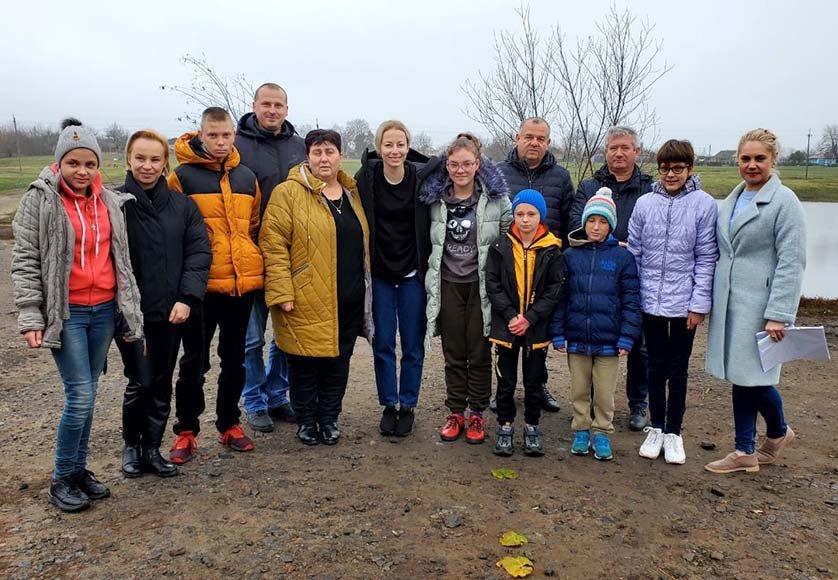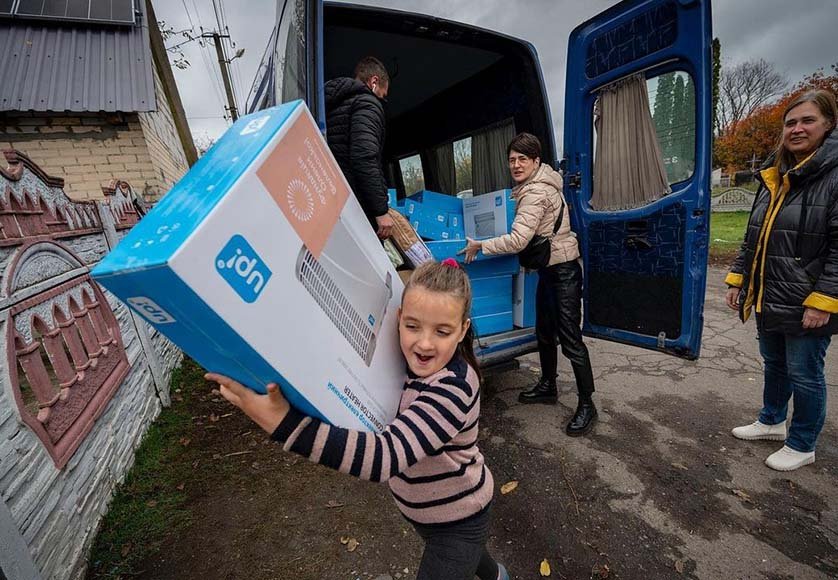The missile that came in from the cold
Christmas is over and in Portugal we are facing the challenges, and hopefully the delights, of a new year. For Orthodox Christians in Ukraine, however, Christmas falls this Sunday, January 7.
The war between Russia and Ukraine has been compared to World War I, a war, it was predicted, would be over in no time at all. Instead, the conflict ground on four years, a battle of attrition resulting in massive casualties. Trenches were dug to provide defensive positions for troops. In December 1914, some German and British units emerged from these trenches to celebrate a poignant Christmas truce.
Through on-the-ground reports, we know there has been no such pause in Ukraine. Russian attacks on critical civilian infrastructure, and in particular energy infrastructure, have continued, not sparing the passage to the New Year.
The Christmas tree on Kyiv’s Sophia Square, close to Saint Sophia Cathedral, prior to the conflict brightly lit, is now replaced by a ‘Tree of Invincibility’, its lights powered by a bicycle, an example among many of the ingenuity and pluck characterising Ukraine’s response to Russian invasion.
In December 2018, I spent Christmas in Kyiv with my daughter, my son, his Ukrainian wife Sasha, and their young family. On long walks, we explored the vibrant, snow-blanketed city, searching for things for the family’s new flat. It was piercingly cold!
To warm ourselves, we made frequent stops in bars and restaurants, restored by excellent Ukrainian wines. The city was cosmopolitan and so European – but for the onion-domed churches with their brilliant-coloured external walls and precious mosaics inside, we could have been in Budapest, Vienna, or even Berlin. We feasted on borscht, Vareniki dumplings, pickled herrings and dried fruits, toasting the future with sparkling wine and vodka.
On October 10 this year, the Kyiv playground in which my grandchildren sometimes played before the war was hit by a Russian missile strike, incontestably targeting civilian lives. This, despite the Geneva Convention, drawn up after World War II to establish a set of international humanitarian standards for war time, to which Russia is a signatory.
Hospital in Izium
Photo: Olena Zelenska Foundation
Ukraine is not unfamiliar with acts of genocide perpetrated on its territory during the last hundred years. In the 1930s, the Soviet Russia-organised famine known as the Holodomor killed five million Ukrainians. In September 1941, the Nazis rounded up Jews and Kyiv’s intellectual community, at Babyn Yar, massacring up to 150,000 people.
The current conflict has caused the largest refugee crisis since World War II. At the end of 2022, nearly eight million refugees were registered across Europe alone, in addition to seven million displaced persons within Ukraine, affecting over one third of the country’s population of 41 million.
The Portuguese government has granted more than 56,000 temporary protection permits to Ukrainians seeking refuge here.
For many Ukrainian civilians, the immediate problem is to survive this winter. The Russian missile barrage has interrupted access to electricity, water, medical treatment and schooling. Lives are threatened and, on a daily basis, health and mental health undermined. In an attempt by Russia to destroy the Ukrainian spirit, drone strikes on Ukrainian cities have increased since the beginning of this year.
Humanitarian aid from the Foundation
Photo: Olena Zelenska Foundation
The Zelenskys make a formidable team.
Olena Zelenska is Ukraine’s First Lady, Ukraine President Volodymyr Zelensky’s wife. Before entering politics, Volodymyr Zelensky was a successful actor, and his wife Olena a script writer.
Like Winston Churchill, the Zelenskys instinctively know winning a war requires even more than troops and arms. It needs narrative shaping to build civilian morale and humanitarian provision for populations to pull through.
In response to Russian invasion, Olena Zelenska established the Olena Zelenska Foundation. At huge personal security risk, she has travelled to Washington, New York, London and Paris to generate support for her Foundation which focuses on providing medicine, education and humanitarian aid to Ukrainians.
A remarkable amount has been achieved since the Foundation’s creation last September.
Nina Gorbachova, Director of the Foundation, told Portugal Resident: “The Olena Zelenska Foundation communicates directly with people in deoccupied territories who have lived through a nightmare and are now trying to return to their everyday lives. We communicate with kids and their caregivers from family-type orphanages whom we take care of. Some of these families have fled the occupation and are starting lives from scratch. Due to our direct communication, we know what assistance is required – heaters, warm blankets, accumulators, furniture, laptops for kids to continue their education, or everything at once.
“I truly hope that 2023 will bring us our long-awaited victory. Adults and children in Ukraine cannot pause their lives – they need to continue to live a decent life, be warm, and have access to healthcare and education.”
It goes without saying a vast amount still needs to be done, urgently, every day, in particular for children and the elderly. To be part of this effort, visit the website: https://zelenskafoundation.org/en
First published in Portugalresident.com Jan 2023




